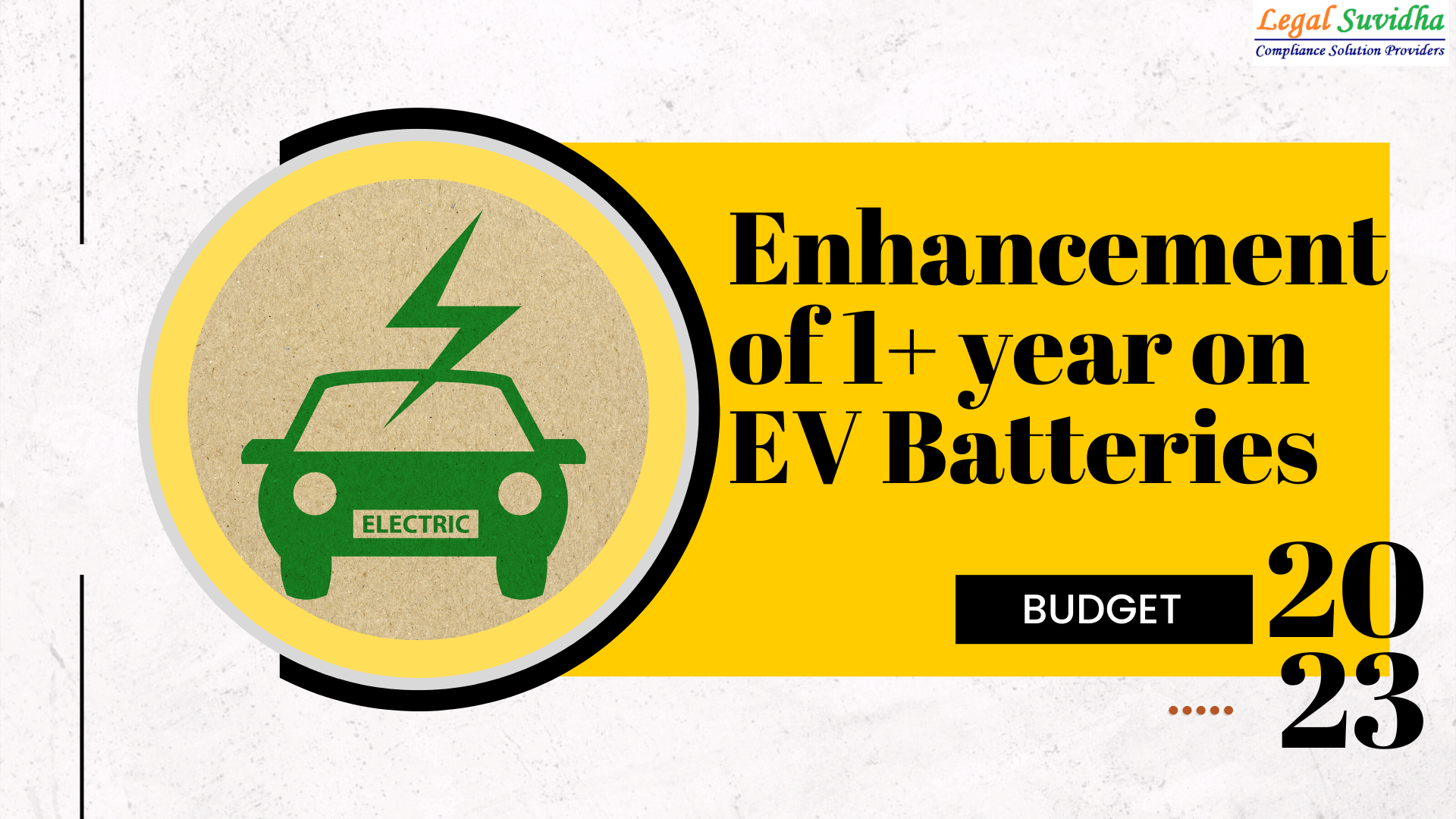ENHANCEMENT OF 1+YEAR ON EV BATTERIES UNDER SUBSIDY
An electric vehicle (EV) is a type of vehicle that runs on electricity, instead of gasoline or diesel fuel. It uses an electric motor and a rechargeable battery to power the vehicle, which can be charged from an external source or generated onboard through regenerative braking. Examples of electric vehicles include battery electric vehicles (BEVs), plug-in hybrid electric vehicles (PHEVs), and fuel cell electric vehicles (FCEVs).
Finance Minister Nirmala Sitharaman made the announcement when introducing the Union Budget 2023, making electric vehicles (EVs) more affordable in India by extending the subsidies on their batteries for another year.
Finance Minister Nirmala Sitharaman said that “I propose to continue the concessional duty on lithium-ion cells for batteries for another year”, The government introduced the Production Linked Incentive (PLI) scheme for making batteries in May 2021. Government funding for the FAME scheme has also been boosted.
The momentum in the Electric Vehicle (EV) industry has been building positively and in the past few years, there has been an increase in demand for them. Customers have accepted the technology, and the industry is ready to take off. The government also has been promoting and prioritizing electric mobility. Its initiatives, such as the FAME scheme, which emphasizes demand creation, have provided the right platform for the industry.
Green Growth was included as one of the top 7 priorities in the Union Budget 2023. The Pro-EV budget focuses on crucial efforts like cutting the customs duty on lithium batteries from 21% to 13% and extending the subsidies for EV Batteries by another year. These are positive measures since they will help increase demand.
However, it is common for governments to prioritize “green growth” or sustainable development in their budgets as a means of promoting environmental protection and combating climate change. This can take the form of funding for renewable energy projects, energy efficiency measures, and other initiatives aimed at reducing greenhouse gas emissions and promoting sustainability.
SIGNIFICANCE OF ELECTRIC VEHICLE (EVs):
Electric vehicles (EVs) have gained significance due to the need for more sustainable transportation and to reduce dependence on fossil fuels. Key benefits of EVs include:
- Lower carbon emissions: EVs emit significantly fewer greenhouse gases compared to traditional gasoline vehicles.
- Cost savings: The cost of electricity to charge an EV is usually much lower than the cost of gasoline.
- Improved air quality: EVs produce zero tailpipe emissions, leading to improved air quality and reducing health risks associated with air pollution.
- Energy security: By reducing dependence on oil, EVs can contribute to increased energy security.
- Quiet and smooth driving experience: EVs are often known for their quiet and smooth driving experience, with instant torque and improved acceleration.
Overall, the shift towards EVs is an important step towards a more sustainable and environmentally responsible future.
The policy on replacing old polluting vehicles should hasten the transition to electric vehicles, which is consistent with the budget’s goal of encouraging eco-conscious lifestyles and the government’s commitment to promoting environmental sustainability, as emphasized by the Finance Minister in the recent Union Budget 2023.
The finance minister announced that to promote the adoption of cleaner transport alternatives, the government has decided to exempt capital goods and machinery required to manufacture lithium-ion cells for batteries used in EVs. Custom duty on lithium-ion batteries themselves has further been reduced from 21 percent to 13 percent on commodities except for textiles and agriculture. Subsidies on EV batteries have also been extended for another year. This is likely to further surge the adoption of EVs in the country.




















